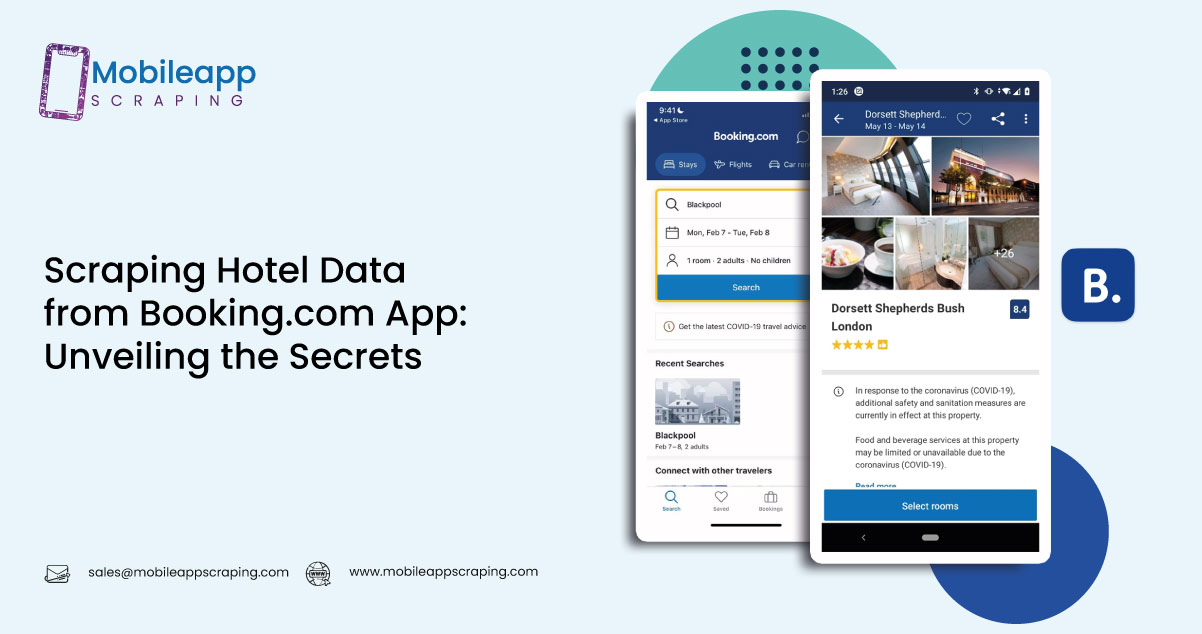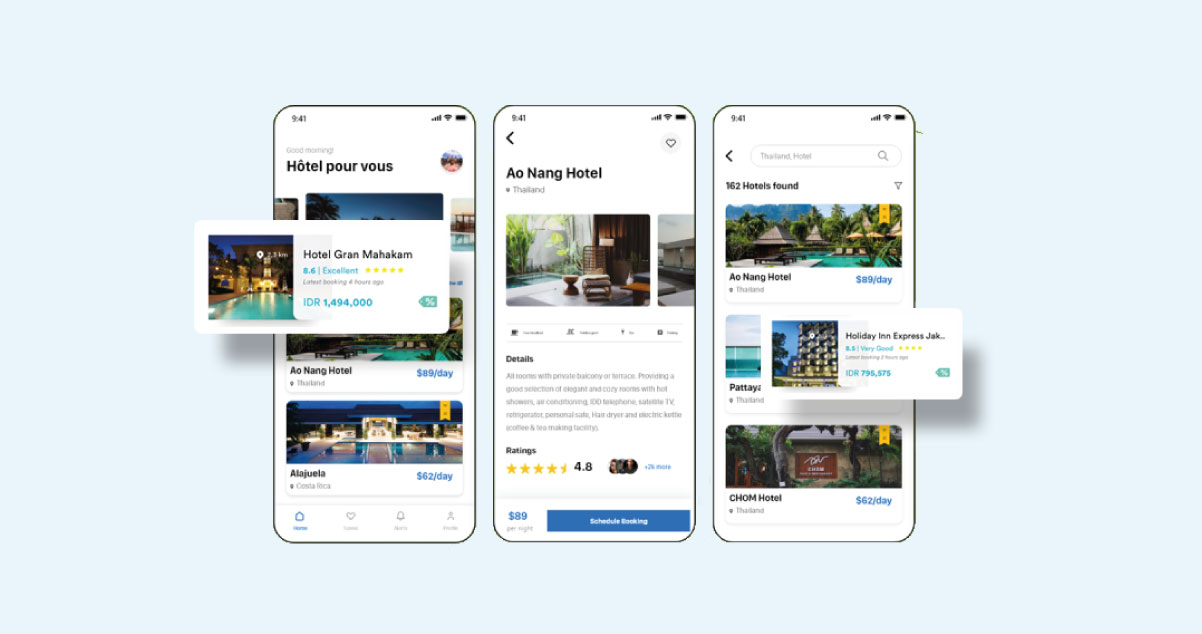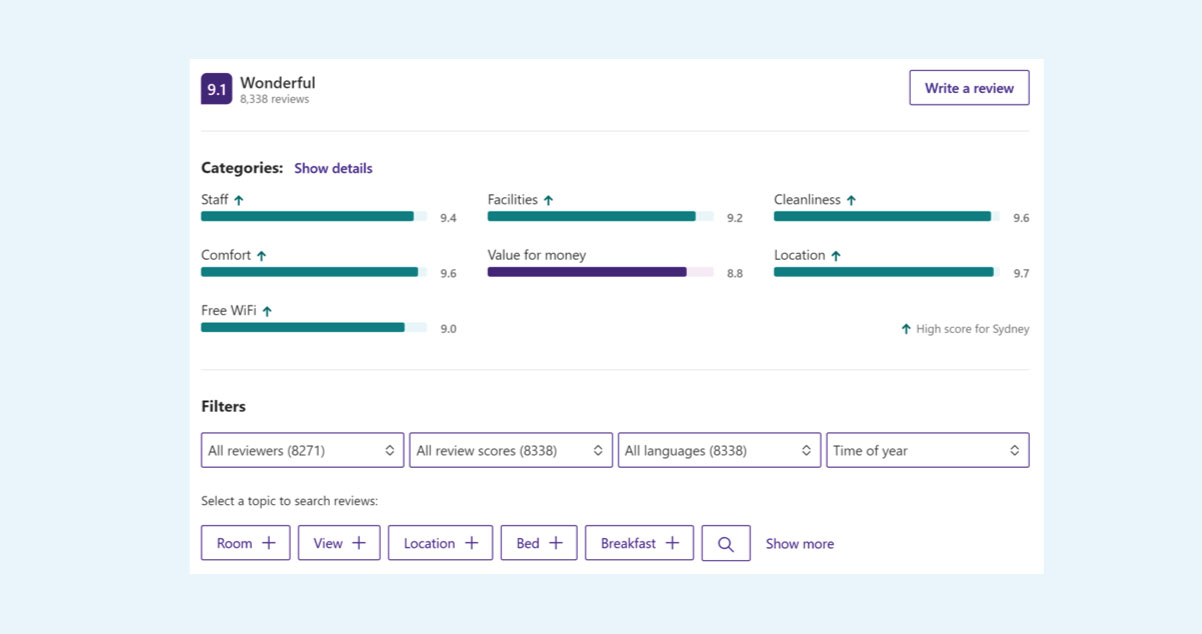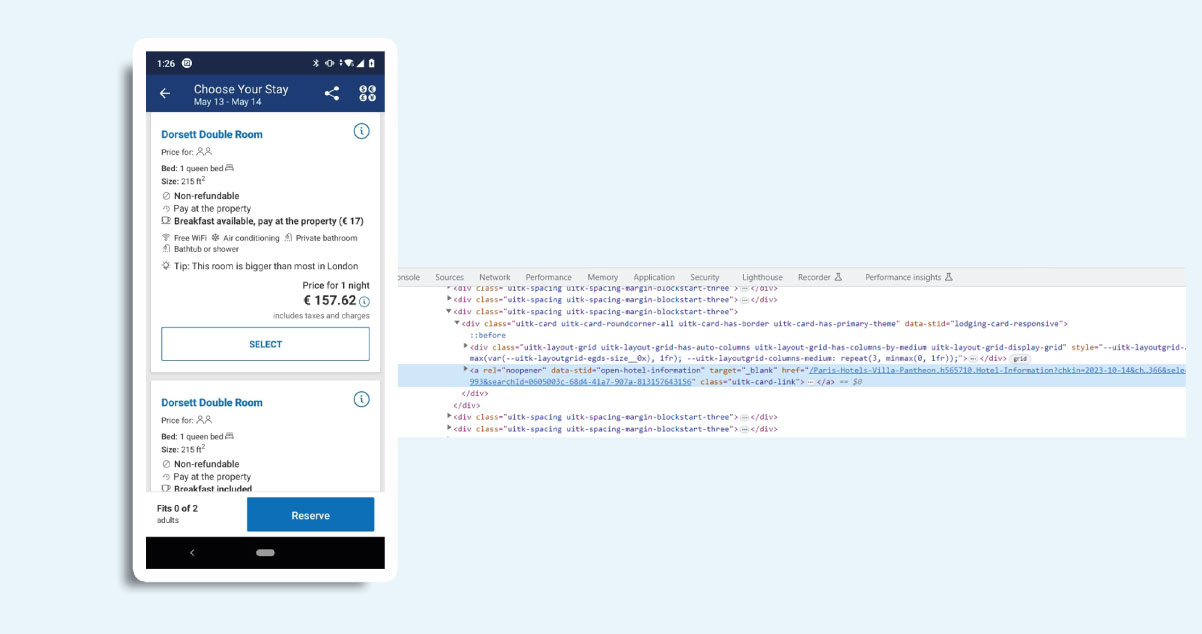
Scraping Hotel Data from Booking.com App: Unveiling the Secrets
Introduction
In the era of data-driven decision-making, individuals passionate about travel and professionals in the travel industry constantly pursue valuable information to enhance their travel experiences or optimize business operations. Booking.com, a prominent player in the online travel booking sphere, houses a wealth of hotel data encompassing pricing, availability, reviews, and more. However, extracting this data directly from the Booking.com app poses a challenge due to its closed environment.
Fret not, data enthusiasts! This blog post aims to guide you through diverse methods of Scraping Hotel Data from Booking.com app, even in the absence of direct app access. By exploring alternative approaches, users can gain insights into valuable information that can benefit personal travel planning and business strategy development.
It's essential to note that ethical considerations and compliance with legal standards should guide any data exploration. Instead of resorting to unauthorized methods, individuals can explore legitimate channels, such as leveraging APIs provided by many websites, to access data in a structured and authorized manner. This ensures adherence to ethical practices and respects the terms of service set by online platforms.
Challenge of Direct Access: Navigating the Closed Environment of Booking.com App

Unlocking the wealth of data housed within the Booking.com app is a formidable challenge due to its closed environment. This closed ecosystem is designed to safeguard user information, employing encryption and robust security measures that pose significant barriers to direct data extraction. Developers and data enthusiasts encounter technical hurdles when bypassing these safeguards, finding the app's architecture resistant to traditional scraping methods.
Beyond the technical complexities, delving into the closed app environment raises legal and ethical red flags. Any attempts to breach the terms of service for data extraction may lead to legal consequences, emphasizing the importance of adhering to ethical standards in pursuing information.
Recognizing these challenges, the need for alternative approaches becomes evident. In the upcoming sections, we will explore legitimate and responsible methods to scrape data from Booking.com app without compromising ethical considerations or violating legal boundaries. Join us as we navigate the complexities of the Booking.com app's closed environment and unveil alternative pathways to accessing the coveted hotel data.
Ethical Considerations: Navigating Data Exploration with Integrity

In the dynamic landscape of data exploration, maintaining ethical standards is paramount. This segment underscores the critical importance of ethical practices and legal compliance, serving as a compass for responsible data enthusiasts.
Acknowledging the potential repercussions of unauthorized scraping, a stern warning is issued against such practices. Beyond the technical and legal consequences, unauthorized scraping threatens one's reputation and trust within the data community. Real-world examples of legal actions and backlash underscore the gravity of these risks, emphasizing the need for a principled approach.
Advocating for ethical alternatives, the focus shifts to legitimate channels, mainly using Application Programming Interfaces (APIs). This advocacy centers on the benefits of APIs in providing structured, authorized data access. By championing the use of Booking.com data scraping API, this approach ensures compliance with ethical standards and fosters a collaborative and sustainable data ecosystem.
Ethical considerations are not just a moral compass but a safeguard against legal entanglements and reputational damage. As data enthusiasts, embracing ethical practices ensures that our data exploration remains responsible and credible and contributes positively to the evolving landscape of information access.
Exploring Ethical Data Extraction: Navigating Legitimate Avenues
In the dynamic landscape of data extraction, adopting ethical and legitimate methods is imperative for responsible data enthusiasts. This segment offers a comprehensive exploration of ethical approaches, ensuring transparency and adherence to legal standards.
Publicly Available APIs:
Application Programming Interfaces (APIs) are a cornerstone for ethical data extraction. Publicly available APIs provide a structured, authorized, and efficient means of accessing data from platforms like Booking.com. Their real-time capabilities and adherence to terms of service make APIs a reliable and preferred choice for those seeking information responsibly. The benefits span from reliability and security to contributing to collaborative, transparent data ecosystems.
Responsible Web Scraping:
While hotel app data scraping services is a valuable tool, its responsible use is pivotal. This entails compliance with ethical guidelines, respect for robots.txt directives, and avoiding excessive requests that may strain servers. Data enthusiasts can harness their power by approaching mobile app scraping tools responsibly without compromising ethical standards or infringing upon legal boundaries.
Navigating ethical hotel app data scraping services involve embracing publicly available APIs for their structured and authorized access and employing mobile app scraping tools responsibly. This commitment to ethical practices ensures that data exploration remains a responsible, legal, and transparent endeavor, contributing positively to the evolving landscape of information access.
Unlocking Insights: A Guide to Utilizing Booking.com APIs

Understanding APIs:
Application Programming Interfaces (APIs) act as gateways, facilitating communication between software systems. In the context of Booking.com, Bookind.com app scraping APIs serve as bridges that allow external applications to access and interact with the platform's vast array of hotel data. APIs enable seamless integration, providing developers with a structured means to retrieve information without compromising the integrity of the source.
Advantages of Booking.com APIs:
Harnessing Booking.com APIs offers numerous advantages. Firstly, they provide real-time access to up-to-date information, ensuring that the data retrieved is current and accurate. Additionally, Booking.com APIs maintain data integrity by adhering to the platform's terms of service and promoting ethical and legal data access. This not only enhances the reliability of the extracted information but also fosters trust between developers and Booking.com.
Step-by-Step Guide:
Accessing API Documentation: Explore Booking.com's API documentation to understand the available endpoints and parameters.
Obtaining API Key: Acquire an API key, a unique authorized access identifier through the platform's developer portal.
Constructing API Requests: Craft requests using the designated endpoints and parameters to specify the desired data.
Interpreting Responses: Understand the format of API responses, which typically come in JSON, to extract and utilize the retrieved data effectively.
By following this step-by-step guide, developers can unlock the potential of Booking.com APIs, gaining valuable insights into hotel data while adhering to ethical and legal standards.
Navigating Mobile App Scraping Responsibly: An Ethical Approach
Overview of Mobile App Scraping:
Mobile app scraping involves automated data extraction from mobile apps, allowing users to gather valuable information for various purposes. While this technique is powerful, its responsible use is paramount to maintaining ethical standards. App scraping can provide insights into pricing trends, reviews, and availability, but it must be approached with caution and respect for the source.
Introduction to Scraping Tools and Techniques:
Scraping tools, such as BeautifulSoup and Scrapy, are instrumental in automating the extraction process. These tools employ techniques to navigate website structures, locate relevant data, and collect information efficiently. Understanding the fundamentals of these tools is crucial for responsible mobile app scraping.
Guidelines for Ethical Scraping Practices:
Respect Robots.txt: Adhere to the guidelines set in a website's robots.txt file, which specifies areas that should not be crawled.
Avoid Overloading Servers: Limit the frequency and volume of requests to prevent undue strain on the website's servers.
Obey Terms of Service: Scrupulously follow the terms of service of the website being scraped, ensuring compliance with legal and ethical standards.
Data Privacy Considerations: Exercise caution when dealing with personally identifiable information and sensitive data, respecting privacy laws and regulations.
By adhering to these guidelines, practitioners can engage in responsible mobile app scraping, extracting valuable data ethically and avoiding potential legal consequences. This ensures a harmonious balance between the benefits of data extraction and the ethical considerations inherent in mobile app scraping practices.
Unlocking Valuable Insights: Revealing the Power of Extracted Data
Once data has been successfully extracted using ethical methods such as APIs or responsible mobile app scraping, the real journey begins – unlocking valuable insights that can transform decision-making processes and enhance understanding. Delving into the potential of this extracted data opens doors to a myriad of possibilities for individuals and businesses alike.
Exploring Pricing Trends:
Unveiling pricing trends within the hotel industry allows for strategic planning and informed decision-making. Analyzing historical data can reveal seasonal variations, helping businesses optimize pricing strategies and providing travelers with insights into the most cost-effective times to plan their trips.
Analyzing Customer Reviews:
Customer reviews are a goldmine of information, offering sentiments, preferences, and critiques. Through sentiment analysis and pattern recognition, businesses can gain a deeper understanding of customer satisfaction, identify areas for improvement, and tailor their services to meet customer expectations.
Assessing Availability:
Understanding the availability of accommodations is crucial for both travelers and businesses. Real-time data on room availability enables users to make informed booking decisions, while hotels can optimize their occupancy rates and maximize revenue.
By showcasing examples of these valuable insights, from pricing trends to customer reviews and availability metrics, individuals and businesses can harness the power of data to make informed choices and improve overall experiences in the dynamic landscape of the travel industry. The extracted data becomes not just information but a strategic tool for shaping decisions and enhancing outcomes.
Conclusion
In the ever-evolving landscape of data extraction, the importance of ethical considerations cannot be overstated. Mobile App Scraping understands that responsible data practices are a choice and a commitment to integrity, legal compliance, and fostering a trustworthy data environment.
We encourage data enthusiasts to explore alternative approaches responsibly. Mobile App Scraping advocates for a conscientious and lawful exploration of hotel data, whether leveraging APIs or employing hotel app data scraping services with care. It's a commitment to transparency, integrity, and the responsible use of technology for informed decision-making.
Explore the realm of data with Mobile App Scraping — your trusted partner in responsible data practices. Join us in navigating the ethical landscape of data exploration, unlocking valuable insights while upholding the highest standards of integrity. Visit our website, engage with our resources, and let's embark on a journey of ethical and informed decision-making together.